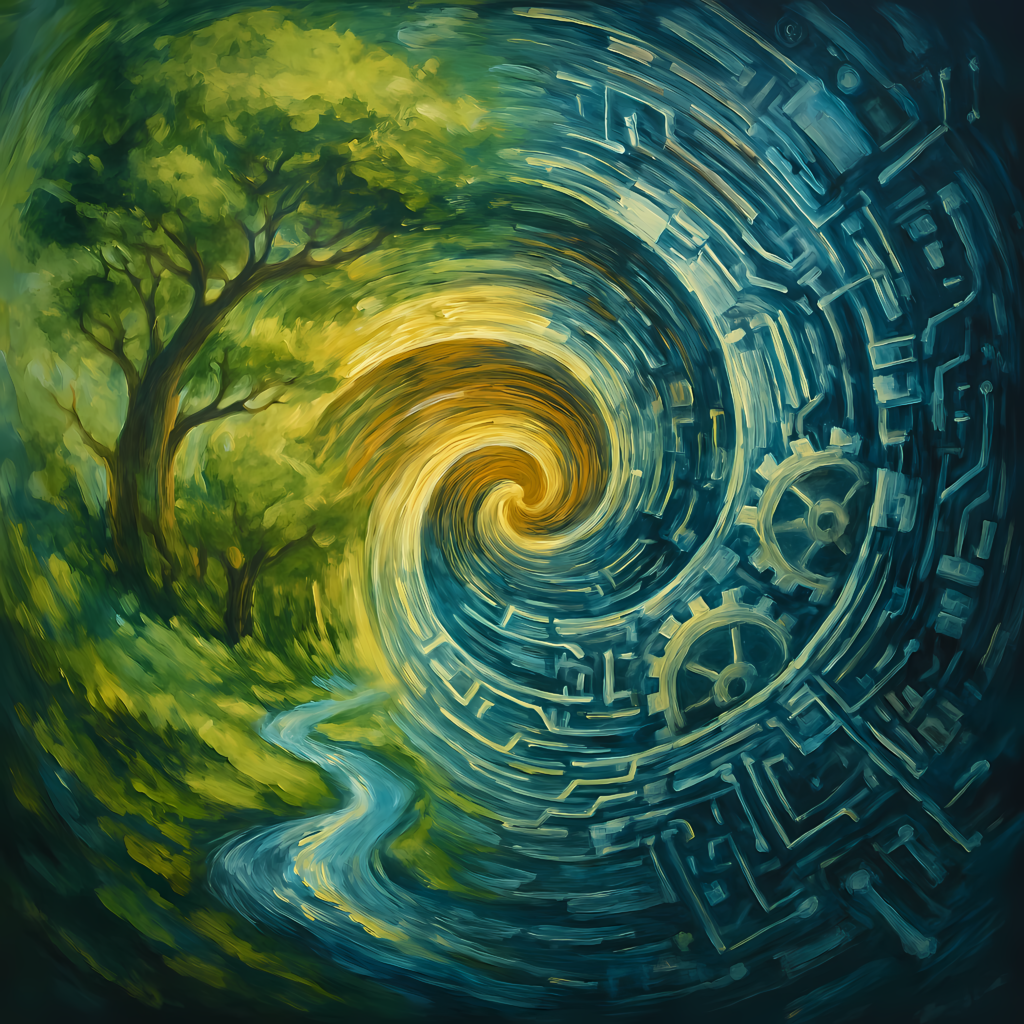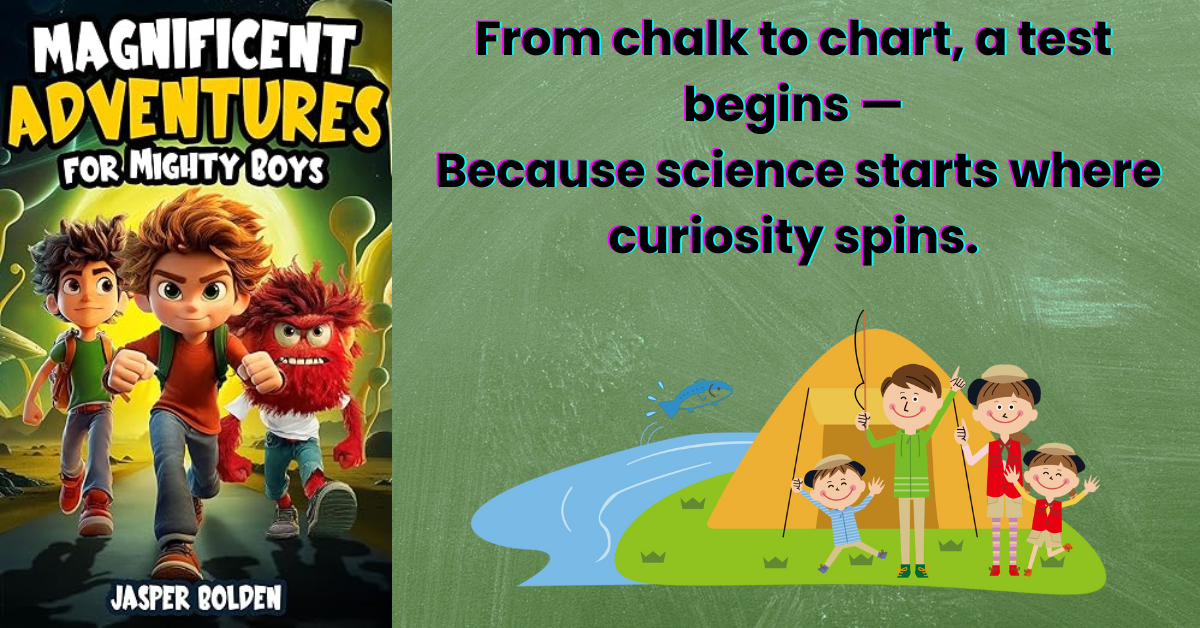The Spiral of Science, Technology, and Civilization: When Progress Bites Back
Science and technology have shaped modern civilization—but not without a cost.
We frequently picture scientific progress as a straight, upward slope and a constant march toward greater progress.
Human ingenuity has irreversibly altered our reality and presence in the constant struggle for survival. It runs from the miracle of vaccinations to the grand voyage of space flight – from the hum of electricity that fuels our world to the revolutionary possibility of AI or quantum leaps.
However, with each new discovery, a sense of an ominous black cloud creeps in like a shadow stretching across a bright path on our future.
Every device we make, every experiment we successfully conduct, and every system we expand in our society brings with it a subtle and ignored setback. This new problem arises from the very answer we built. It is like an unforeseen shadow thrown by our success.
Welcome to the Reverse Spiral Effect seen through the scientific and technological telescopes. Through human ideas pushing the society forward, the resulting technological breakthroughs constantly introduce unanticipated frictions and complexities that obstruct progress.
The more we move forward, the more crises arise that push us backward towards a clashing point.
This is not a setback but rather a reoccurring problem that we must solve.
Let us take a look at a few examples of this spiraling pattern’s impact on our lives. Though the examples run all over the society with numerous factors, we just cite a few, like health, the environment, war, and the very fabric of our society.
All these are causes of creeping fears and growing chaos; each forward momentum quietly breeds its own pushback.
Medical Progress: A Blessing and a Curse
Today, healthcare is a miracle.
Modern medicine has unquestionably changed lives as well as improved the quality of life for millions through advanced treatments and technologies.
Deadly contagious diseases that used to wipe out entire communities are now controllable, if not prevented. We now hear stories of the Black Death and cholera epidemics; even diseases like polio and chickenpox, which were formerly common, are now extinct. People are no longer afraid of diseases like leprosy and tuberculosis.
Vaccines, antibiotics, and organ transplants—these have rewritten human fate. These have turned what were once fatal illnesses into mere inconveniences.
The average lifespan has now doubled compared to previous generations. We live longer and healthier lives, fulfill our dreams, and get better opportunities and experiences.
Yet, this success reveals an underlying weakness—we are wrestling with a paradox showing the effects of the reverse spiral: Let us have a glimpse of the opposite scenario behind the stunning achievements.
The more we depend on medication, the more we weaken our natural immunity.
Superbugs, resistant to every known drug, are rising. These are threatening a return to pre-antibiotic medicine.
Even as we eliminate certain illnesses, chronic conditions like heart disease, obesity, and diabetes are becoming more widespread. Their associated health risks and economic burdens reflect the impact of modern lifestyles.
People no longer live a short span of life, and child mortality has decreased, but they have become crippled by a variety of ailments that have destroyed a healthy and fruitful life.
Ethical dilemmas and social imbalances have been rising due to the advent of many modern medical advancements. For instance, gene editing, organ transplants, abortion, test-tube babies, bioengineering, etc., even with their promise, present us with long-term risks we scarcely comprehend.
Due to shifting lifestyles, environmental factors, vaccination reactions, etc., the incidence of deadly diseases such as heart disease and cancer is increasing.
Though with advancements in treatment, we cannot get a gross level of a healthy generation despite many factors quietly opposing the progress.
Globalization, once hailed for facilitating the exchange of medicine and technology across borders, today makes it practically impossible to contain outbreaks. COVID-19 spread like wildfire, not because it was contagious but because our world is more interconnected than ever.
It only takes a few days for a virus to go global now, using the same transport systems that get us medicine and supplies.
Such a dilemma we are spiraling with—we cannot deny globalization and also cannot avoid rapid expansion of diseases.
Crowded cities and climate change are bringing us into closer contact with new diseases from the natural world. Global interconnectedness makes it increasingly difficult to control biological threats.
New diseases and viruses are emerging at an alarming rate due to deforestation and ecological imbalance – a threat compounded by the very real risks of laboratory accidents and bioterrorism. All of this adds up to a complicated and ever-changing threat that we are only now beginning to fully appreciate.
Progress, when unchecked, creates new dependencies. The very systems that save us may make us more vulnerable.
It’s a paradox: the better we get at fixing things, the more fragile we become.
Industrial Growth vs. Ecological Collapse: Progress that Poisons the Planet
Industrialization has helped billions escape poverty.
However, the sky-high, huge victory does not come without a discount—our planet is heating, the environment is polluting, species are vanishing, and ecological balance is collapsing.
Our cities and dreams are powered by fossil fuels. But now, melting glaciers and choked skies are consequences of carbon emissions and exhaust chemicals. Deforestation eats away at biodiversity – our ecosystem is alarmingly collapsing.
Extreme weather is putting a strain on food systems. Agriculture is faltering while being artificially supported by deadly insecticides and chemical fertilizers. Instead of feeling reassured, people are becoming increasingly concerned about food insecurity.
Our search for technological solutions like geoengineering, deep-sea mining, and even space resource extraction could lead to unforeseen catastrophes.
We’re even looking to a more productive civilization through geoengineering, deep-sea mining, and space adventures. So, are we basically dumping the effects of what we do onto another area?
As technology becomes more advanced, the demand for rare materials is increasing, like lithium, cobalt, and rare earth elements —all of which come at environmental and geopolitical costs. The demand for everything from lithium batteries to bottled water is soaring, yet the systems that deliver these resources remain alarmingly weak and susceptible to disruption.
The industrial waste, nuclear reactor waste, etc., are overwhelmingly increasing.
Though dumping them covertly in the ocean, desert, or island may temporarily keep the cities of affluent countries clean and vibrant, the long-term worldwide after-effect is harmful.
And as the worldwide desire for more commodities and luxury goods is rising, the opposite spiral is coiling swiftly toward yet another great conflict of mankind.
Meanwhile, the global economy is becoming increasingly dependent on technology. Economic demand mounts, resulting in resource dependency intensifying, straining global supply chains, and leading to heightened competition for dwindling resources.
Sources of clean water are vanishing, natural resources like minerals, fossil fuels, etc., are getting more limited, forests are being looted, and food supplies are under severe pressure. Our ever-more complicated socio-economic systems grow more susceptible to collapse as technology develops.
The greater our technological dependency, the more fragile our survival becomes.
Weapons and War: Fragile Peace on a Razor’s Edge and the Illusion of Safety
We are now living in a dream world that says the weapons we have created are too dangerous for anybody to use; thus, we are safe!
We often think things are super peaceful now. But under the surface, a more unsettling story brews.
In this respect, I am especially pointing to Weapons of Mass Destruction, a constant, terrifying presence hanging over our heads like the imminent threat of a catastrophic volcanic eruption.
With today’s advanced weaponry, autonomous drones, robots, and hi-tech weapons, the world is dangerously close to collapse. Mutually assured destruction (MAD) has preserved global peace—but only at the surface.
While we may celebrate the end of the Cold War, smaller conflicts continue to simmer beneath the surface.
With proxy wars, cyberattacks, and AI weapons, assigning blame is difficult, making escalation a real threat. Deterrence prevents major wars, yet smaller conflicts globally persist, their quiet but pervasive violence forming a constant, low hum of conflict across the world.
Technological warfare has not removed violence but has altered its nature. Though nuclear deterrence might have avoided world wars, numerous proxy wars still plague the globe.
AI’s threat extends beyond national security; it’s transforming economies, spreading misinformation, and altering the nature of work. Deepfakes, biased algorithms, and job displacement from automation demonstrate that even helpful technologies can disrupt the systems they aim to support.
Technological strength breeds a new kind of insecurity—one that is harder to see but far more dangerous.
The Digital World: Connection Without Community
The Social Spiral: More Connected, More Divided
Perhaps the most ironic reversal of all lies in our digital world, a realm of fleeting connections and manufactured identities, starkly contrasting with our expectations of permanence.
If there’s one setback that hits close to our home, it’s the irony of the digital world. Through the advent of the Internet age, we’ve never been more connected and never felt more alone.
The internet, a network of information and connection, bound us together. Yet, simultaneously, it also created division among us. While it gave the voiceless a voice, it also increased the noise.
Social media unites billions, raises awareness among us, and empowers everyone internally and socially. However, it also fosters echo chambers, misinformation, and widespread loneliness. Mental health problems increase in parallel with digital engagement.
The more you share, the less private you are.
The same platforms that give us a voice can drown out our thoughts and emotions. We’re surrounded by content and oceans of information but starved for clarity and practical logic. We know more about strangers than we do about ourselves, our family, and our surroundings.
And behind the scenes, a new economy thrives—surveillance capitalism, where our behavior is tracked, sold, and shaped by unseen algorithms. We are losing privacy and our ability to think freely.
Our fears, habits, and clicks are making surveillance capitalism rich.
In this day and age, when people’s attention spans are getting shorter, focus is more valuable than it has ever been; it is a scarce and uncommon resource. On the other hand, genuine trust is nearly nonexistent, making it a costly commodity.
The paradox of modern society: Unrelenting digital connection causes a widespread sensation of loneliness; unmatched access to knowledge and tools causes worry, depression, and unrest.
We thought we were building networks. Instead, we built echo chambers.
The Spiral of Civilization
For every significant advancement in science and technology, an unseen force of unintended consequences emerges, leaving an unseen imprint on the world.
That is the core of the Reverse Spiral Effect: progress, a persistent forward motion that drags its opposing force, resistance, in its wake.
We cannot and should not resist advancement. However, if we ignore the spiral it generates, we risk falling into it.
We do not wish to halt the upward flow of innovation; its vitality is critical. We need to understand the entire scope and gravity of this.
A civilization that understands the Reverse Spiral may adapt, change, and survive.
Neglecting it will lead to the rapid and unexpected destruction of a civilization.
It is not a question of *whether* we move forward, but of *how* we progress with each step.
🔻 End of Chapter 7—The Reverse Spiral of Technology and Civilization.
Next Chapter: The Psychology of Collapse—Why Humans Don’t Learn from History
📍 More insights at: https://rzripplerbooks.com//the-book-voyager-dy-page/
📍 Follow me: https://linktr.ee/rzripplerbooks



